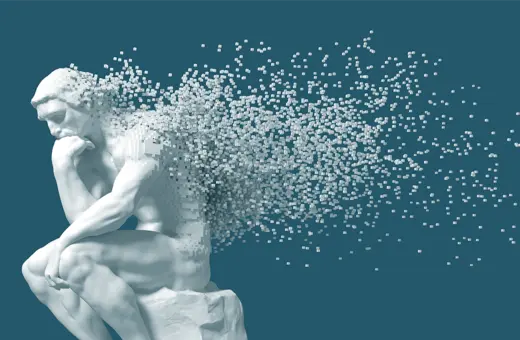Modern life is too fast and complex for powerful individuals to save the day. For CEO and author of Wilful Blindness, Margaret Heffernan, the idea of the heroic individual is a fantasy.
Here she speaks to the IAI about the myth of the heroic individual, and why the most successful businesses are adopting radical new organisational structures.
In your talk on IAI TV, you suggested that when considering positions of authority and leadership we collectively buy into the myth of what you called ‘the heroic individual’. What exactly is the ‘heroic individual?’
A heroic individual is a person who thinks, “I’m the smartest guy in the room [it usually is a guy] and my job as leader is to know everything and to be able to make all the decisions, to be able to make all the right decisions faster, and better than anyone else can”.
You also suggest that we have too much faith in these leaders, treating them as messiahs to solve our problems. Why do you think this is? And why do such individuals fail in their vocations?
One reason why we accept it is because I think it’s possible that in the past that it worked. But I definitely don’t think it’s true that it works anymore. There are certainly a lot of rich narratives and mythologies around them. The kind of leaders we’re talking about are portrayed routinely as superheroes. Whether it’s the knight in shining armour who comes and rescues the situation, whether it’s the superhero who comes and saves the city or the planet, there is a very long tradition of heroic leaders portrayed in this way. Even if it was ever true, I think it’s no longer true for two main reasons: 1. The world has become too complex so that no one person can know enough. 2. That complexity has made the world very unpredictable – those are the consequences crucial in decision-making to take multiple perspectives and individuals can’t do that.
So myths often contain a grain of truth. Many of the traits that we might want our heroic individuals to possess are ones that we generally value – intelligence, decisiveness, self-confidence, knowledge, ambition etc. Are such qualities in fact detrimental to leadership, or is the problem the way these qualities are embodied by these heroic individuals?
The grain of truth in these myths is that we would like them to be true, that we often find ourselves in circumstances we don’t understand and we wish someone did. Some of that derives from nothing more complex than our own experience of childhood where we grew up with parents who seemed, at least early in our lives, to be able to solve all our problems and cater to all our needs. So on one level the belief in heroic individuals is nothing more than a kind of infantile mindset.
You’re right that there are qualities that these kinds of characters have. But my argument would be that they’re necessary but insufficient. In any leadership world we need intelligence, of course, but we need different kinds of intelligence and we need intelligence from very many perspectives, especially as the people are going to be impacted by decisions are now more varied than ever. Any decision is going to have an impact on a very wide diversity of people and my capacity to see the consequences of my decisions from all those different perspectives is impossibly complex. So I need other people to bring me different perspectives.















Join the conversation